Five things Kim Jong-un can learn from Trump's 'Art of the Deal'
- Published
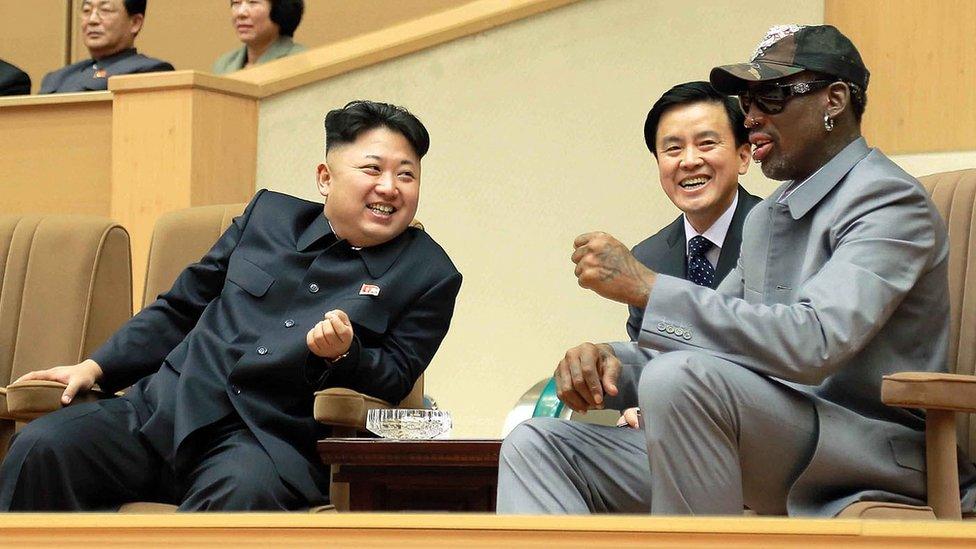
Kim Jong-un and Dennis Rodman watching a basketball game in Pyongyang in January 2014
The North Korean leader has received a copy of Donald Trump's book - so what can he learn from it?
In June 2017, Dennis Rodman packed his bags, hopped on a plane and flew to North Korea to see Kim Jong-un.
As you do.
The former basketball player has known Mr Kim since 2013 and calls him a "friend for life". So, like any good friend, he took gifts.
The goody-bag included soap, a mermaid puzzle and a Where's Waldo book. He also gave him a book written in 1987.
The book, called Art of the Deal, was written by none other than Donald Trump - another of Rodman's friends.
It is part-memoir, part self-help for dealmakers. As Mr Kim prepares for his proposed meeting with the US president - what might he learn from Mr Trump's book?
The unlikely triangle: Trump, Rodman and Kim Jong-un
Don't be intimidated
Theodore Dobias was a drill sergeant in the US Marines who became a teacher at a private boarding school in New York.
In the 1960s, one of his students was a teenage Donald J Trump.
"Dobias was the kind of guy who could slam into a goalpost wearing a football helmet and break the post, rather than his head," writes Mr Trump in Art of the Deal.
"If you stepped out of line, Dobias smacked you, and he smacked you hard."
Some of Mr Trump's classmates took on Mr Dobias physically. "They ended up getting stomped," writes Mr Trump.
Some of them sucked up. "They became nebbishes [someone pitifully ineffectual or timid]," he says.
The future president tried a third route. He respected Mr Dobias, but let him know he wasn't intimidated.
"Like so many strong guys, Dobias had a tendency to go for the jugular if he smelled weakness," writes Mr Trump.
"On the other hand, if he sensed strength, but you didn't try to undermine him, he treated you like a man."
Donald Trump and Kim Jong-un: From enemies to frenemies
Hold your ground
During college, Mr Trump invested in a housing development in Cincinnati, Ohio. One of his project managers was a 65-year-old called Irving.
Irving was short, fat, bald, with thick glasses and "hands like Jell-o". On the plus side - says Mr Trump - he was a "great bullshitter".
One day, Irving went to collect overdue rent from a tenant. After swearing at the family's 10-year-old daughter, he asked her mother out for dinner.
An hour later, the girl's father - "huge guy, a monster, maybe 240 pounds" - burst into Irving's office.
"I expected Irving to run for his life," writes Trump. "Instead he started verbally attacking the man, flailing and screaming and chopping his hands in the air."
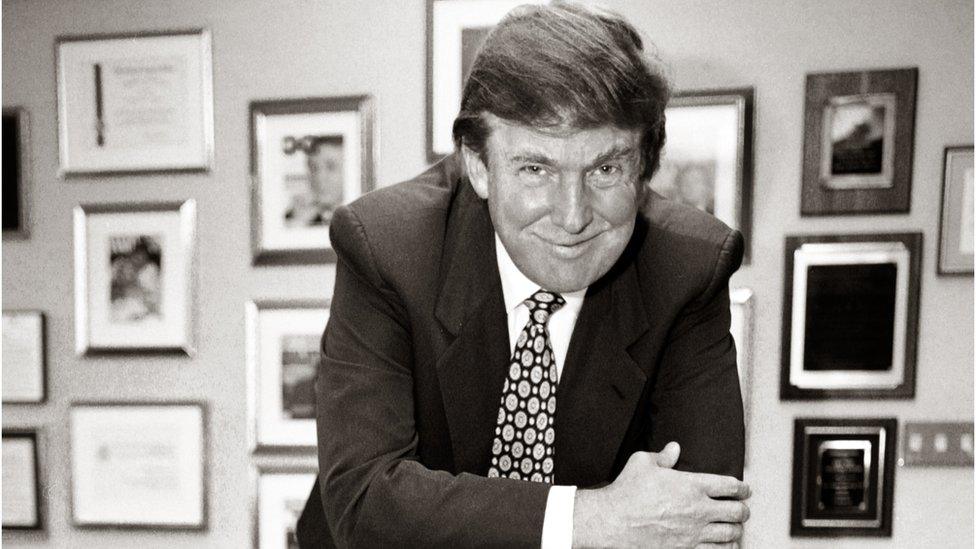
While waving his arms, Irving told the man he couldn't fight him. His hands were lethal weapons. They were registered with the police department, he said.
The man - the 240lb monster - left the office.
"Irving probably saved his own life, just by showing no fear, and that left a very vivid impression on me," writes Mr Trump.
"You can't be scared. You do your thing, you hold your ground, you stand up tall, and whatever happens, happens."
Ask for something extraordinary
After losing the 1980 US presidential election, Jimmy Carter went to see Donald Trump in his office.
Mr Carter was fundraising for his presidential library, so Mr Trump asked how much he wanted. The answer? $5m (around $15m in today's money).
"I was dumbfounded," writes Mr Trump. "I didn't even answer him."
But the meeting wasn't wasted.
"Until then, I'd never understood how Jimmy Carter became president," writes Mr Trump.
"The answer is that, as poorly qualified as he was for the job, Jimmy Carter had the nerve, the guts, the balls, to ask for something extraordinary."
Create leverage
Leverage, writes Mr Trump, is having something the other guy wants, needs, or can't do without.
"The best thing you can do is deal from strength," he says. "And leverage is the biggest strength you can have."
Sometimes, though, leverage must be created.
In 1974, Mr Trump agreed to buy the Commodore Hotel, but needed the authorities in New York to agree. So, he persuaded the Commodore's owners to tell the media they were planning to close.
"After they made the announcement, I wasn't shy about pointing out to everyone in the city what a disaster a boarded-up hotel would be for the Grand Central area," writes Mr Trump.
"You have to convince the other guy it's in his interest to make the deal."
The power of negative thinking
Despite buying a number of casinos, Mr Trump says he has "never gambled in his life".
"To me, a gambler is someone who plays slot machines," he writes. "I prefer to own slot machines. It's a very good business, being the house."
Mr Trump does not believe in the power of positive thinking. Instead, he says, he believes in the "power of negative thinking".
"I always go into the deal anticipating the worst," he writes. "If you plan for the worst - if you can live with the worst - the good will always take care of itself."
The difference now, of course, is that real estate is a different game to nuclear weapons.
Planning for the worst - for both Donald Trump and Kim Jong-un - is a petrifying prospect.
- Published9 March 2018
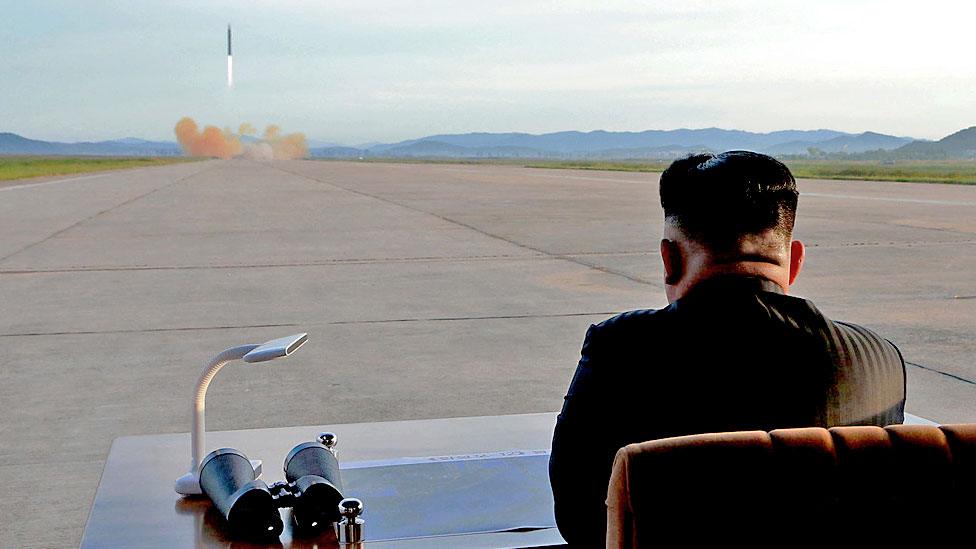
- Published9 March 2018
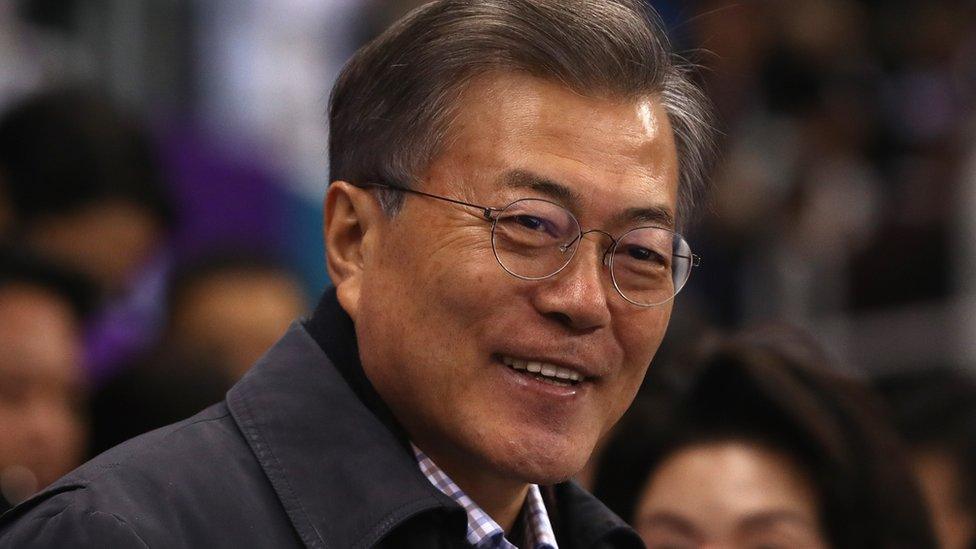
- Published15 June 2017
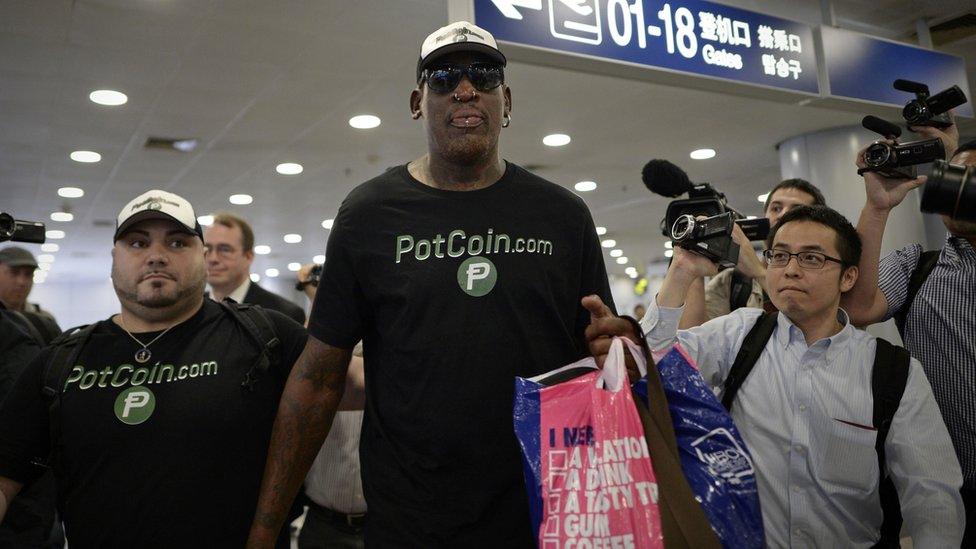
- Published28 November 2010